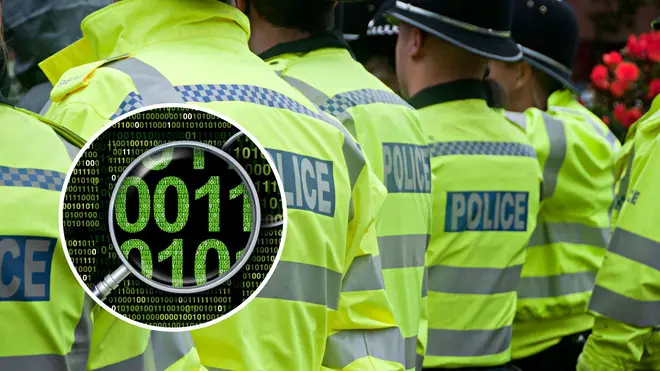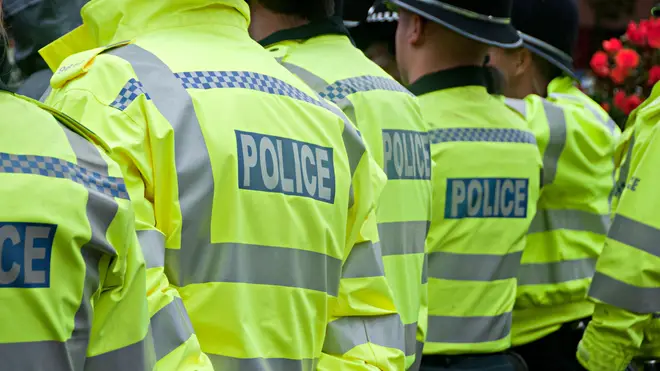
Iain Dale 10am - 1pm
1 December 2022, 07:06 | Updated: 1 December 2022, 07:11

Police are overwhelmed and ineffective when it comes to digital forensics - with a backlog of more than 25,000 devices waiting to be examined, inspectors have found.
A report, by His Majesty's Inspectorate of Constabulary and Fire & Rescue Services (HMICFRS), looked at how effective the police are at capturing evidence from digital devices, including smartphones and computers.
It concluded that some forces are overwhelmed and do not have a clear understanding of what digital forensics are.
Inspectors found that it had led to huge delays in examining electronic devices, with knock-on effects on the prosecutions of offenders and the well-being of victims.
Read more: Prisons packed as overcrowding forces Govt to ask police to borrow their cells
Read more: Police stations closing at the rate of one per week, LBC reveals

His Majesty's Inspector of Constabulary Matt Parr said there was an "enormous gulf" in performance between police forces.
"The rapid emergence of a digital society has created a huge opportunity for police to gather new types of evidence and identify criminals. But in our inspection, we didn't see enough examples of policing making effective and efficient use of digital forensics," he said.
"Many forces didn't have a sufficient level of understanding of the work involved to recover evidence from mobile phones. Delays, lack of resources and lack of adequate training means some victims are being let down and officers are missing their chance to bring offenders to justice.
"During our inspection we found more than 25,000 devices waiting to be examined, and this doesn't take into account all the devices already in the system.
"Some forces are showing promise, and we did see examples of good practice. But we found little evidence of this good practice being more widely shared and adopted by others.
"There is an enormous gulf in performance that cannot continue - it is unacceptable that victims in some force areas receive a significantly better service than others.
"The demand in digital crime will only continue to grow, so police leaders need to work with the Home Office and Crown Prosecution Service to tackle this immediately. Our report makes nine recommendations to address these issues.
"It is clear from our inspection that victims cannot afford to wait any longer for police to start taking this more seriously."
As a result, HMICFRS made a series of recommendations to improve digital forensics, including appointing a national digital forensics policing lead, increasing the number of dedicated, competent and trained digital media investigators, and a Home Office review into the digital forensics budget.

The National Police Chiefs' Council (NPCC) lead for digital forensics, Deputy Chief Constable Paul Gibson welcomed the report's findings.
"Today, virtually every crime has a digital element, often involving vast amounts of complex data," he said.
"This presents policing with a serious challenge. We recognise this, and the need to do more, and are taking action.
"The NPCC published the Digital Forensic Science Strategy in July 2020, laying out a road map for improving the provision and use of digital forensics across law enforcement. In line with this, a range of activity is under way.
"For example, we are trialling the use of automation in cases relating to child sexual exploitation, in order to free up capacity within digital forensics units to focus on other crimes and tackle backlogs.
"In one force that has trialled this initiative, cases were processed 55% faster on average, with 9.5 hours per case being saved.
"Through Operation Soteria, part of the Government's response to the 2020 Rape Review, we are improving how every element of rape is dealt with.
"As part of this, we have delivered a range of mobile frontline digital forensic tools to enable forces to take technology to victims of rape.
"This includes a £5 million roll-out of mobile digital forensic vans and specialist digital equipment, with further investment supported by the Home Office this year.
"This initiative means we can provide a more sensitive service to victims, give investigators faster and more proportionate access to the right digital evidence and enable them to return devices more quickly."